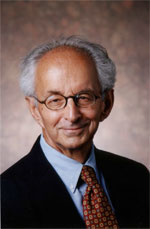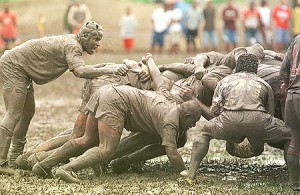Appreciating Our Professors: Dan Freed
 Yale Law Professor Dan Freed has undoubtedly been the biggest influence on my own career as a law professor. I had him for a year-long sentencing course during my third year — a course that was a descendant of the legendary Yale Sentencing Workshop that Dan helped to organize in the 1970’s. The Yale workshop brought together lawyers, judges, policymakers, law professors, and law students for intensive discussions about the sentencing process. A proposal emerging from the workshop caught the attention of Senator Ted Kennedy, who used it as the framework for a major sentencing reform bill. Eventually enacted (with several important modifications) as the Sentencing Reform Act of 1984, the Kennedy bill created the United States Sentencing Commission and the Federal Sentencing Guidelines.
Yale Law Professor Dan Freed has undoubtedly been the biggest influence on my own career as a law professor. I had him for a year-long sentencing course during my third year — a course that was a descendant of the legendary Yale Sentencing Workshop that Dan helped to organize in the 1970’s. The Yale workshop brought together lawyers, judges, policymakers, law professors, and law students for intensive discussions about the sentencing process. A proposal emerging from the workshop caught the attention of Senator Ted Kennedy, who used it as the framework for a major sentencing reform bill. Eventually enacted (with several important modifications) as the Sentencing Reform Act of 1984, the Kennedy bill created the United States Sentencing Commission and the Federal Sentencing Guidelines.
By the mid-1990’s, when I had him as a teacher, Dan had become an outspoken critic of the Commission and the Guidelines. However, his course still reflected his faith in the value of bringing together people with diverse perspectives to talk to one another in a rational, mutually respectful manner about sentencing law and policy. Thus, we had a parade of fascinating guests in the course: judges, prosecutors, defense lawyers, probation officers, law professors, a sociologist, a Senate Judiciary Committee staffer, and others. Taught seminar style, the course included many lively, memorable conversations with our distinguished guests. The experience sparked what has become a long-term interest of mine in sentencing — a subject that I now teach and write about regularly. In fact, the paper I wrote for Dan’s course became my very first law review article. I’ve stayed in touch with Dan (now retired) since then, and have benefitted from his counsel at many turns.
Dan has been a model for me in several respects.

